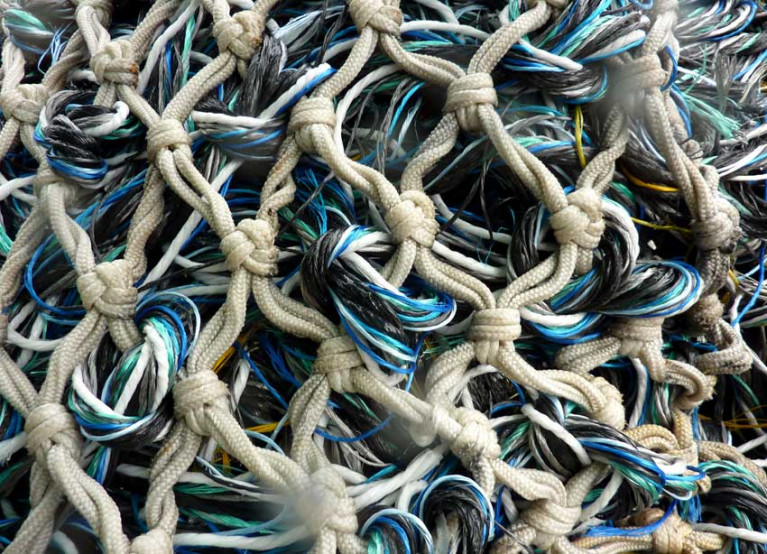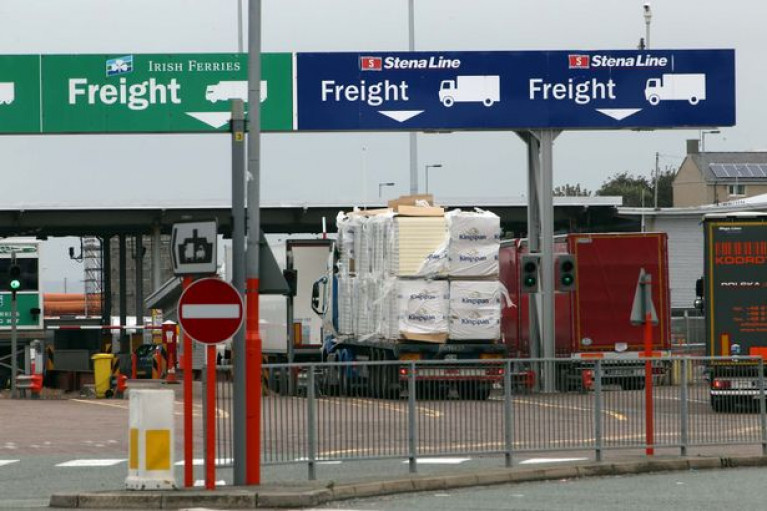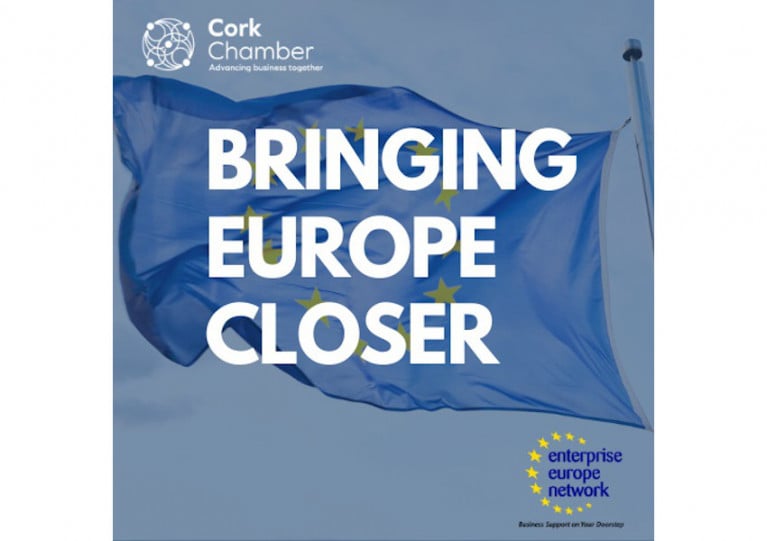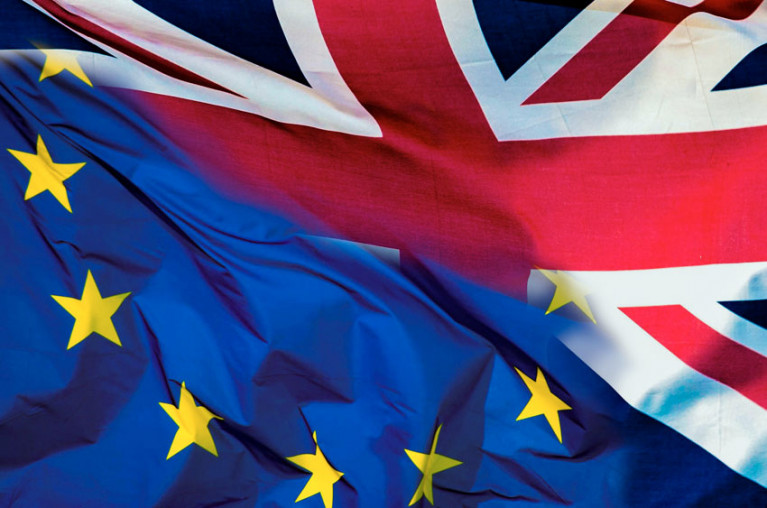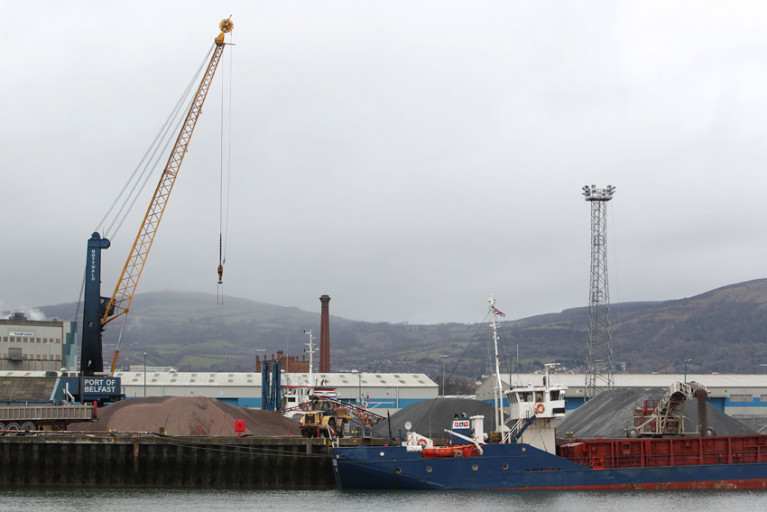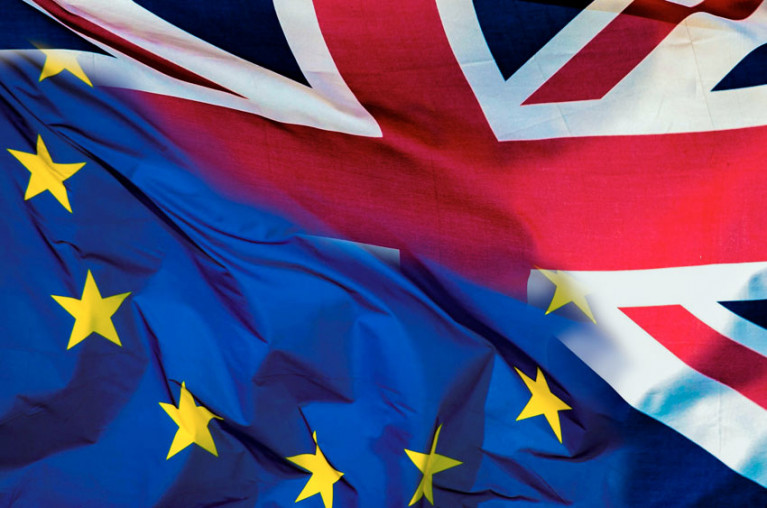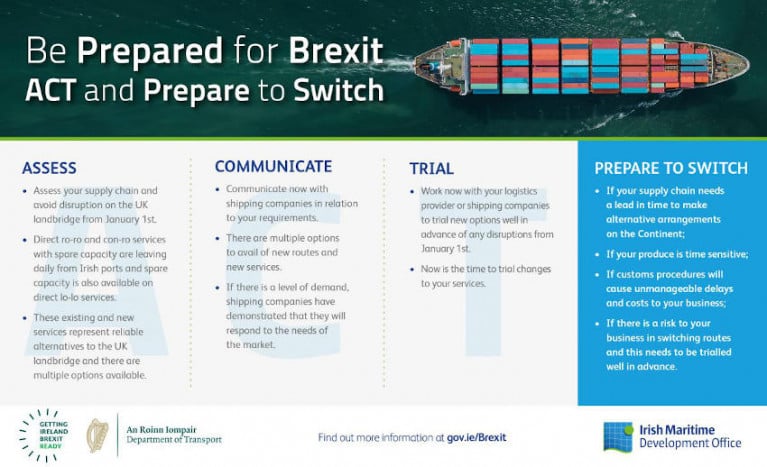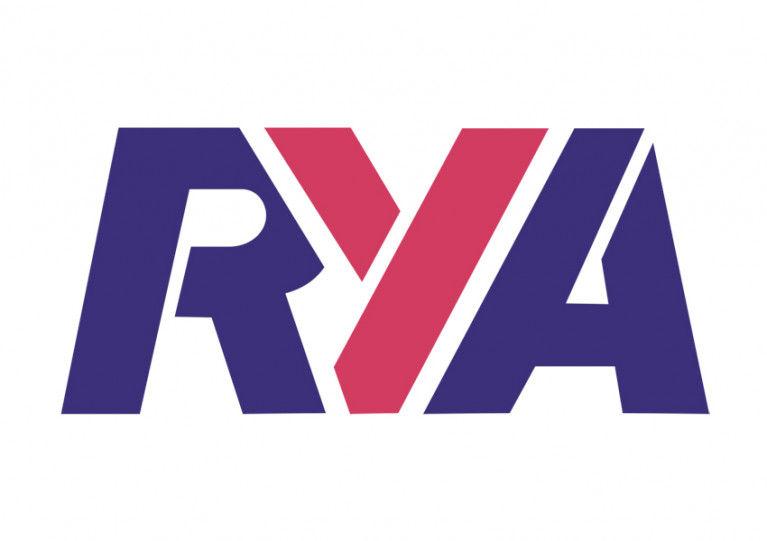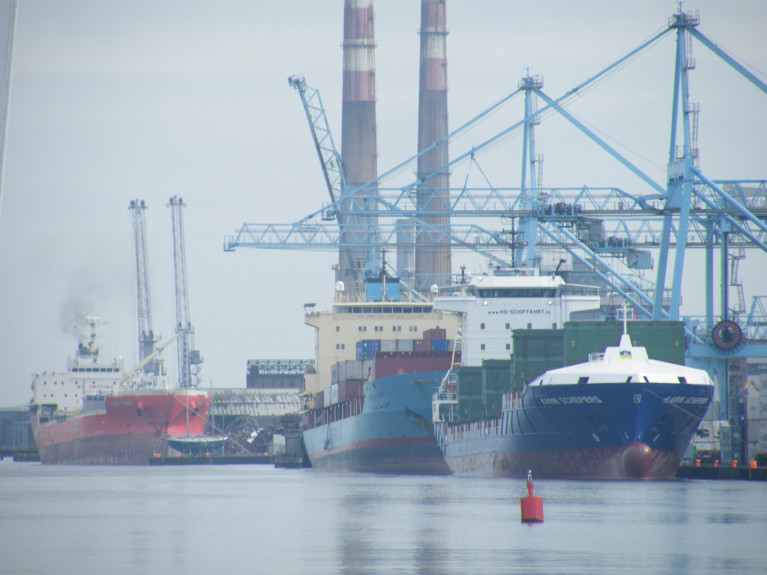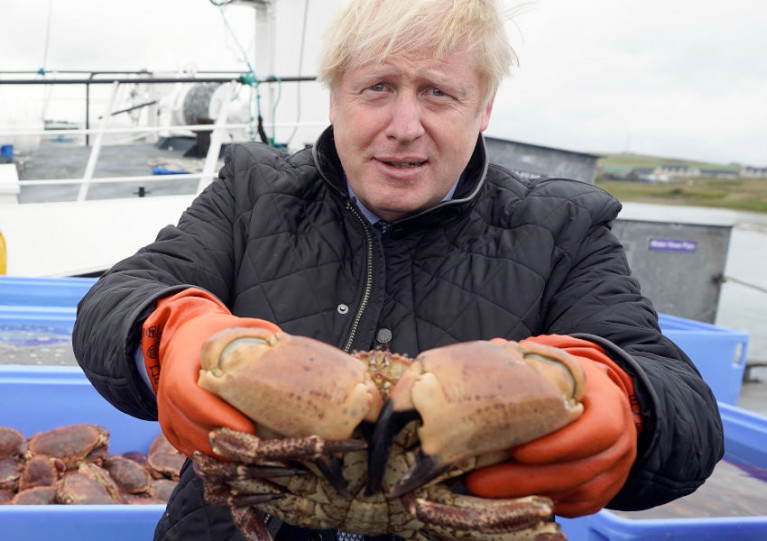Displaying items by tag: Brexit
Brexit Talks Continue After Barnier Offers UK Up To 18% of EU Fishing Quota for Trade Deal
Brexit trade talks are set to continue into the weekend after it was reported an offer was made by the European Union to return up to 18% of fish caught in UK waters.
According to RTÉ News, the EU’s chief negotiator Michel Barnier is said to have briefed member states on the offer this morning, Friday 27 November.
The proposal to hand back 15-18% of fish caught in UK waters by EU fleets could be worth up to €117 million to the British fishing industry.
Fishing rights are among the three main stumbling blocks in the path to a trade deal between the UK and EU, as the end of the Brexit transition period looms less than five weeks from now.
TheJournal.ie reports that Barnier will head to London this weekend for face-to-face talks, with the UK’s lead negotiator David Frost saying a deal was still possible but it “must fully respect UK sovereignty”.
The news of the quota offer has come as a surprise to many in Brussels, with sources of one BBC journalist saying the figures involved were among many discussed in recent weeks and would be a “very high price to pay” for Ireland and other EU fishing countries.
EU sources have expressed surprise at reports that their chief negotiator Michel Barnier will soon propose they give up between 15 and 18 per cent of their fishing quota in UK waters as part of a Brexit trade deal. 1/
— Nick Beake (@Beaking_News) November 27, 2020
RTÉ News has more on the story HERE.
Hauliers Fear 'Mayhem' at Holyhead Port when Brexit Transition Ends
"Mayhem" at Holyhead port is what hauliers have claimed there will be when the Brexit transition period ends.
The north Wales ferryport is the second biggest "roll-on roll-off" port in the UK after Dover, carrying 1,200 lorries and trailers a day across the Irish Sea.
The Irish Road Haulage Association (IRHA) said the first six months of 2021 would be "terrible" as the port is not ready to cope with the change.
But the port's owner, Stena Line, has said the process would be smooth.
The IRHA remain unconvinced as the deadline to agree a new UK-EU deal approaches and the Brexit transition period ends on 31 December.
It is concerned border-ready pre-boarding IT systems have not been tested for outbound travel.
The European Union is planning to enforce border controls on the Irish side from 1 January but inbound lorries into Wales will not face any checks by UK authorities until July 2021.
For much more BBC News reports here.
Cork’s New Direct Shipping Link with Zeebrugge is Hot Topic of ‘Bringing Europe Closer’ Webinar This Month
Cork’s new Brexit-busting Ro-Ro freight link with Zeebrugge will be the focus of discussion at a special webinar on Thursday 26 November.
As previously reported on Afloat.ie, the Port of Cork facilitated CLdN’s establishing a new direct shipping route from Cork to the Belgian port — bringing Europe closer and bringing SMEs within 550km of 60% of the EU’s purchasing power.
Gaining direct access to mainland Europe is increasingly important for businesses, as concerns grow over potential delays for companies sending products via the UK landbridge as Britain leaves the Single Market.
As Irish businesses re-evaluate their supply chains, finding business partnerships and sourcing products in these new markets may be daunting.
But support agencies such as Flanders Investment and Trade and the Enterprise Europe Network can assist with this process.
Flanders is also an ideal investment location for companies looking to get a foothold in Europe and reach clients in Belgium, its neighbouring countries and the European hinterland.
Book now to join the discussion to learn more about the new direct connections between Cork and Zeebrugge, and how this can be a first step for your business in bringing Europe closer. Speakers include:
- Ambassador Pierre-Emmanuel De Bauw, Belgian Ambassador to Ireland
- Conor Mowlds, Chief Commercial Officer, Port of Cork
- Lieve Duprez, Chief Officer Shortsea, Port of Zeebrugge
- Jacques Vanhoucke, Trade and Investment Commissioner, Flanders Investment and Trade
This event is being hosted by Cork Chamber and the Enterprise Europe Network in association with the Port of Cork, Belgian Embassy, Flanders Investment and Trade & Port of Zeebrugge.
NI Boats May Head South for Winter in Bid to Secure VAT & Duty Status as Brexit Transition Ends
Ireland could see an influx after Christmas of visiting boaters from Northern Ireland seeking to secure the VAT and duty status of their vessels as the Brexit transition period ends.
The suggestion comes after the UK’s Royal Yachting Association earlier this week welcomed “greater clarity” on the position of the customs status of boats from the European Commission.
As previously reported on Afloat.ie, British boaters resident in the UK and the EU alike have feared being left in limbo regarding the tax and duty status of their vessels — and facing hefty charges when selling on or even relocating across territories.
The situation could still see a depression of the used boat market in Great Britain as EU-based buyers may be dissuaded by significant import levies.
Addressing UK boaters’ concerns, Howard Pridding, the RYA’s director of external affairs, said: “The Commission is no longer saying that any boat lying in the UK at the end of the transition period will not be eligible for Returned Goods Relief (RGR) as the boat will not have been exported.
“Instead they have differentiated the advice based on where the boat is registered and where the owner is established.
“The Commission’s interpretation of the law provides important guidance, but the final decision on what actually happens when a boat is imported rests with the authorities in the country in which that import is taking place.”
Pridding also noted the European Commission has confirmed the RYA’s suspicions “that documentation (such as a T2L, customs opinion letter or other supporting documentation) issued by the UK before the end of the transition period will not be valid in the EU as of the end of the transition period.
“However, we would recommend that boat owners keep hold of such documents, as they may provide useful evidence of the boat’s history and could be helpful when dealing with customs authorities in the EU27 in the future,” he added.
Meanwhile, as talks continue, it’s also expected that UK boats in the EU will be given a year’s grace to return to Great Britain before losing their UK VAT-paid status.
The situation is less clear for boats currently lying in Northern Ireland, as the implementation of the Northern Ireland Protocol is still under negotiation.
Nevertheless, a source close to Afloat.ie has suggested Ireland might now “expect to see a lot of Northern Ireland boats” and even boats from Wales “come [to the Republic] after Christmas to be in the EU” and then return to Great Britain in the New Year in the hopes of retaining their current VAT and duty status.
Checks For Northern Ireland Protocol Set to Go Ahead Even Without Facilities at Ports, Stormont Committee Hears
Brexit checks on goods crossing the Irish Sea should be “operational effective” on 1 January even if customs facilities at ports are not yet on the ground.
That was the message from a senior Stormont official who gave evidence to the Executive Office committee yesterday, Wednesday 21 October, as TheJournal.ie reports.
“If buildings aren’t fully complete then that doesn’t stand in the way of there being effective checks,” said Andrew McCormick, Stormont’s lead official on EU exit.
Extra checks will be required on animal-based products entering Northern Ireland from Great Britain under the terms of the Withdrawal Agreement.
As previously reported on Afloat.ie, the EU is seeking to have 15 customs and veterinary staff working alongside UK officials at ports of entry to ensure the proper implementation of the Northern Ireland Protocol.
However, officials warn that the new physical infrastructure needed will not be ready by the end of the Brexit transition period on 31 December.
TheJournal.ie has more on the story HERE.
Marine Minister Welcomes Resumption of Brexit Deal Talks But Urges Marine & Agri-Food Industries to Prepare for New Year
Marine Minister Charlie McConalogue has welcomed the resumption of Brexit trade deal talks by the EU and the UK which aim to close the gaps between the two sides, including on the key issues of fisheries, the level playing field and governance.
Addressing the the Brexit Stakeholder Consultative Committee today, Thursday 22 October, the minister again urged agri-food businesses to immediately take the practical steps necessary to prepare for the changes that Brexit will bring from 1 January next year.
“This meeting is being held at a critical time, given that there are only around 70 days until the economic Brexit becomes a reality for us all,” said Minister McConalogue.
“We have said this before, but it bears repeating … things will change on 1 January 2021, and we need to understand what this will mean and be ready for it. There will be additional delays and costs, and businesses need to factor this into their planning for the period from 1 January onwards.”
The Department of Foreign Affairs gave an update on the state of play of EU-UK negotiations and the implementation of the Withdrawal Agreement, including the Protocol on Ireland/Northern Ireland — the full, effective and timely implementation of which remains vital.
The Department of Transport provided an update in relation to the issue of direct ferry connections to the continent. Minister McConalogue encouraged businesses to engage with ferry companies on direct services in order to avoid potential delays on the UK landbridge.
‘With just over two months until the end of the transition period, time is very short and action is required urgently’
Recognising the vulnerability of the agri-food and fisheries sectors in the event that no EU-UK agreement is reached in the coming weeks, the minister welcomed the Government’s recent budgetary provision for an overall contingency fund of €3.4 billion to address the twin challenges of Brexit and Covid-19.
“This contingency fund will be made available to assist our most vulnerable sectors,” the minister said. “In addition, we know that the EU will establish a €5 billion Brexit Adjustment Reserve for the Member States and sectors worst affected by Brexit.
“Clearly, Ireland and its agri-food and fisheries sectors are particularly exposed, and I look forward to seeing the Commission’s proposals in relation to how this fund will be administered.”
On fisheries, the minister noted his recent bilateral meetings with fisheries ministers from France, Denmark, Belgium and the Netherlands when he attended the Agriculture and Fisheries Council in Luxembourg this week.
“As we reach a critical point in the negotiations, I highlighted that, now more than ever, it is vital that member states continue to remain united in order to protect the EU’s fishing industry and coastal communities.
“Unity, co-operation and solidarity between member states are vital at this critical juncture.”
Concluding, the minister said: “With just over two months until the end of the transition period, time is very short and action is required urgently. This is not something that can be left to the last minute, so I would appeal to businesses in the agri-food sector to take action now.”
IMDO To Marine Transport: ‘ACT Now & Prepare to Switch’ Before Brexit
‘ACT now and Prepare to Switch’ — that’s the message to the logistics and maritime transport sectors from the IMDO as the prospect of a disorderly Brexit looms.
The two-part strategy for stakeholders begins with ACT, or Assess, Communicate, Trial.
As highlighted by the Government since 2018, Irish industry needs to assess supply chains to avoid disruption on the UK landbridge from 1 January 2021.
There is maritime capacity available on both existing and new services to transport goods directly to Continental Europe across different modalities (RO/RO, CON/RO, LO/LO), which represent reliable alternatives to the landbridge.
Now is also the time to communicate your requirements to shipping companies.
There are multiple options to avail of new routes and new services. If there is a level of demand, shipping companies have demonstrated that they will respond to exporters’ needs — the latest being CLdN, which has indicated it can “dramatically” increase its direct services to the Continent if need be.
The next step is trial — work now with your logistics provider or shipping companies to trial new options well in advance of any changes after the Brexit transition period ends.
Stakeholders should Prepare to Switch to direct services to the Continent to protect their route to market and avoid disruption on the UK landbridge. This is especially important if:
- Your supply chain needs a lead in time to make alternative arrangements on the Continent;
- Your produce is time-sensitive;
- Customs procedures will cause unmanageable delays and costs to your business;
- There is a risk to your business in switching routes and this needs to be trialled well in advance.
For more information on planning for Brexit, see gov.ie/Brexit
RYA Hosting Free Webinar On Brexit Issues This Wednesday
The Royal Yachting Association is hosting a free webinar this Wednesday 14 October at 4pm to share news on its latest lobbying activities over Brexit.
Representatives from the RYA’s cruising and legal and government affairs teams will cover the latest communications with the UK Government on the Brexit-related subjects that RYA members are most concerned about.
These including cruising access to the Schengen Area, the Return Goods Relief for boats, the validity of sailing qualifications in the European Union and changes to border controls.
Cabinet told Dublin Port Not Yet Ready for Brexit
The Cabinet has heard that Dublin Port is not yet ready for the looming Brexit deadline and needs another inspection facility.
On Tuesday Ministers discussed how prepared Irish ports and airports are infrastructurally. The Cabinet was told that while airports were on target, and Rosslare Port is also prepared, an inspection facility is still needed in Dublin Port.
Minister were updated on the looming Brexit deadline and a number of “high-level risks” that have been identified, including potential delays and blockages at UK ports for Irish operators.
Minister for Foreign Affairs Simon Coveney is due to introduce a new Brexit omnibus Bill in the coming weeks to prepare Ireland for the changes that will arise at the end of the transition period.The Bill will consist of 21 parts under the remit of 11 Ministers.
The Irish Times reports also on the Climate Action Bill.
UK Makes Push On Fisheries To Secure Post-Brexit Trade Deal After New Agreement With Norway
Post-Brexit fishing rights were high on the agenda at a “crunch” summit yesterday (Saturday 3 October) between British Prime Minister Boris Johnson and European Commission President Ursula von der Leyen.
The Guardian reports on the EU’s warming to the idea of an annual agreement on share of catch, as mooted in the UK’s new negotiation paper — which offers a three-year transition period for EU fishing fleets — and following a fisheries deal reached with Norway last week.
Britain is now pushing that deal as a model for its post-Brexit relationship with the EU over fishing rights and quotas.
France remains opposed to the suggestion over fears that failure to reach agreement on annual allowable catches could destroy the livelihoods of its own coastal fishing communities.
But it’s understood Prime Minster Boris Johnson is hopeful that French President Emmanuel Macron — who is said to have isolated himself from other EU heads of state over his hardline stance on fisheries — will acquiesce to Britain’s new demands in order to secure a much-needed UK-EU trade deal.
The Guardian has much more on the story HERE.


























